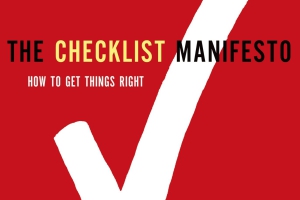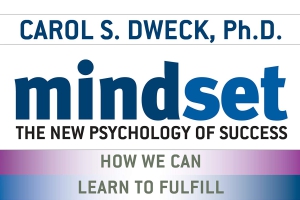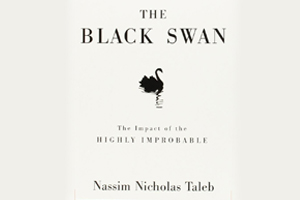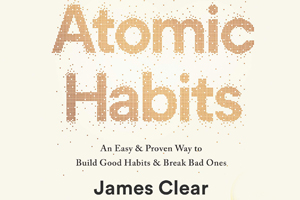Charlie T. Munger, often known as Warren Buffet’s right hand man, is one of the most influential and successful investors of all time. If you are someone who wants to learn about investing, astute financial planning or just a good and honest life, then you will definitely benefit from reading his book, ‘Poor Charlie's Almanack: The Wit and Wisdom of Charles T. Munger’ by Charles T Munger. He is an inspirational leader and an honest businessman who is guided by a strong work ethic.
This book is a collection of the best advice given by Charles Munger over the last 30 years. It covers a diverse range of topics including investing, astute financial planning, rationality and decision making, how to live a good life, etc.
Key Takeaways
- The foundation for any good decision is rational thinking and avoidance of biases
- As human beings, we are all impacted by biases which lead us to making sub optimal decisions
- Biases can effectively be dealt with if you are able to recognise that you don’t know everything and are willing to learn
- When making investment decisions, avoid following the herd
- Contrary and divergent thinking will help you identify great ideas
- The big opportunities are rare, so you always need to be prepared for them
- Having an investment decision checklist will not only prepare you for the big opportunities but will also ensure that you are able to remove bias from your investment decision making process
- Asset allocation is the most important tenet of investment decision making
- Having a long-term approach to investment can accrue multiple benefits and ensure that you are able to optimally harness the power of compounding
Rationality and decision making
Every individual, including you, is subject to biases that can have a significant impact on your ability to make rational decisions. If you want to make better decisions then you must focus on seeking the truth and making an effort to understand what is truly happening. This will help you recognise your biases and also limit their damage. Some of the notable biases that can potentially impact you include:
- Incentive bias: All humans are driven by self-interest. If you receive a reward for doing something, you will intuitively repeat that behaviour again and again.
- Doubt-avoidance tendency: Doubt is painful and can cause a lot of stress. When you are in doubt, you tend to make decisions more quickly and often the wrong ones.
- Inconsistency-avoidance tendency: Most people don’t like change. Whether it is about personal behaviour, beliefs, investment approach, etc., change is generally avoided.
Below, is a step-wise process to reduce biases as much as possible and make optimal investment decisions:
- The first step is to understand how easy it is for you to fool yourself.
- Second, you must consider the views of other people as well, especially if they are in contrast to your ideas and opinions.
- Third, after considering the viewpoints of other people, you should be open to changing your mind if the other person is making a compelling argument.
Practice divergent and contrary thinking
The fact of the matter is nobody knows everything and is right all of the time. It is easy to go with the herd and keep practicing something, even if it is incorrect. To avoid this, you must practice divergent and contrary thinking and invite new ideas that might be more correct than what everybody else thinks. This is something that can be particularly effective in the field of investing. Most people tend to buy when other people are buying and sell when other people are selling. So, if the crowd is collectively wrong, which it often is, then you end up making wrong investment decisions more often than not. To combat this problem, you must be cautious when others are euphoric and euphoric when others are cautious.
Investing and decision making checklist
One of the best ways by which you can avoid making biased investment decisions is to create an investment checklist and ensure that you stick to it.
The first aspect that you must consider is risk. In fact, all the investment decisions that you make should begin with an evaluation of risk, especially reputational risk. The top things that you must incorporate in your risk assessment include:
- Ensure that your investment has an appropriate margin of safety
- You must avoid dealing with untrustworthy people or people of questionable character
- If you are taking higher risk then you must ensure that you are adequately compensated for it
- Always take into consideration the impact that inflation and interest rates can have on your investment
- Try avoiding big mistakes that can lead to a complete loss of capital
- Adopt independent decision making instead of following the herd
Always remember that just because other people agree or disagree with you doesn’t make you right or wrong. The most important factor is the correctness of your analysis and judgment. When you follow the herd, you are setting yourself for failure. But if you want to become an independent thinker then there are a few things that you must do:
- Become a life-long learner by inculcating a good reading habit. You must cultivate curiosity and strive to become a little wiser every day. You can achieve this by reading good books and incorporating learnings from those books into your life.
- Ask smart questions: The only way you can become smarter is by asking the right questions. Begin with incorporating intellectual humility and acknowledge that you don’t have the answer to everything. Once you accept this universal truth, you need to keep asking ‘why?’
- Develop competence and stick to it: It is always good to develop skills or competence in a particular domain and then stay within a well-defined circle of competence. While you keep asking ‘why’ ensure that there are certain fields in which you will always have the answers.
- Never fool yourself: Always remember that the easiest person to fool is ‘yourself’. Do not fall into that trap. Be honest with yourself, acknowledge your shortcomings, and persevere to consistently learn.
Another important aspect that requires your attention in the investment decision making process is your asset allocation strategy. The proper allocation of capital should be your number one priority. So, always be judicious about where you are investing and what kind of exposure each investment is giving you. Also remember that the highest and best use is always measured by the next best use. This is how opportunity cost is defined. Further, in your investment journey, there will only be a handful opportunities when you will come across great investment ideas. This is because good ideas are rare. So, if you do come across investment ideas where the odds are greatly in your favour then you need to ensure that you allocate heavily in that direction. Opportunities do not come often and thus you need to seize them when they come. The game is won when the opportunity meets a prepared mind. At the same time, avoid falling in love with your investment. Ensure that your investments are situation-dependent and opportunity-driven. Above all, exercise patience and resist the natural human bias to act. If you are investing, you must invest for the long-term and avoid the urge to trade frequently. This will help take emotion out of the picture. Another big benefit of long-term investing is the power of compounding. Compounding ensures that the money you earn keeps multiplying. You should not unnecessarily interrupt the compounding process.
Living the good life
If you really want to live the good life you must have low expectations so that you are not always setting yourself up for disappointment. It is also good to have a sense of humour and the ability to laugh at yourself. Most importantly, surround yourself with your loved ones and family and above all, live with change, learn to accept it, and adapt to it.
One of the most important things that you will do in life is create and preserve your wealth. There are many ways of doing this. However, your biases can come in the way of having a great wealth creation journey. While there are always means to reduce your biases, we all know that this is no easy task. The good thing is that a simple solution to this could be Balanced Advantage Funds. These belong to the hybrid category of mutual funds as they invest in both debt as well as equity instruments. A good Balanced Advantage Fund should be able to captialise upon the opportunities presented by equity investments while protecting the investor from the downside risk of equities by also investing in debt instruments. But the key here is deciding how much to invest, where to invest, and when to invest. This is where the Balanced Advantage fund can be particularly helpful. It will increase exposure to equities when markets start going up and reduce exposure to equities while increasing exposure to debt when the equity markets start going down. The best part is that the decision of shifting from one investment to another is governed by pre-defined factors. Thus, it removes the bias and emotion from the investment decision. To sum it up, while you should definitely embrace means to reduce bias and improve your knowledge, you should also consider investing in a Balanced Advantage fund that will automatically take care of human biases.
An investor education initiative by Edelweiss Mutual Fund
All Mutual Fund Investors have to go through a onetime KYC process. Investor should deal only with Registered Mutual Fund (RMF). For more info on KYC, RMF and procedure to lodge/redress any complaints, visit - https://www.edelweissmf.com/kyc-norms
MUTUAL FUND INVESTMENTS ARE SUBJECT TO MARKET RISKS, READ ALL SCHEME RELATED DOCUMENTS CAREFULLY.
Trending Books
MUTUAL FUND INVESTMENTS ARE SUBJECT TO MARKET RISKS, READ ALL SCHEME RELATED DOCUMENTS CAREFULLY.













